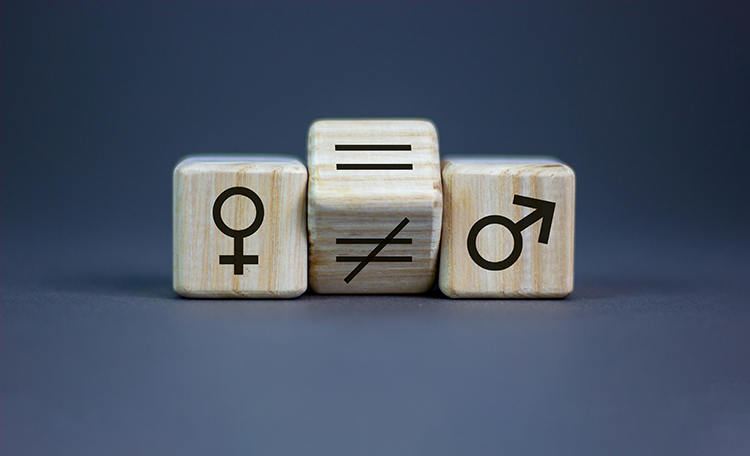Gender affects access to courts and treatment in the justice system, Washington state study says

Image from Shutterstock.
Gender affects the treatment of people in Washington state’s court system, particularly the treatment of women of color, LGBTQ people and women in poverty, according to a report released on Thursday.
“Gender matters—it does affect the treatment of court users (including litigants, lawyers, witnesses, jurors and employees),” says a report executive summary. The full report is here and a fact sheet is here.
The study, released by the Washington Supreme Court’s Gender and Justice Commission, is titled “2021: How Gender and Race Affect Justice Now.” A press release highlights findings, including:
• The costs of accessing courts create barriers and fall most heavily on single mothers, minority women, LGBTQ people and people with disabilities. Costs include user fees, child care and lawyers. In family court, surcharges create additional barriers. Although courts have the power to waive fees for indigent litigants, the process for obtaining waivers can be difficult and time-consuming.
• Lack of affordable child care hampers the ability of low-income women to get to court.
• Minority women are not well-represented in jury pools.
• Female lawyers, especially minority women, face bias and pay disparities in the legal profession. Female litigators—women of color in particular—“continue to face uneven treatment from judges and demeaning treatment from opposing counsel, and may fear that resisting this treatment will harm their clients,” the report says.
• Current practices for valuing life in wrongful death cases devalue the lives of women and minorities. Another concern is that Washington law allows only married people or those in registered domestic partnerships to recover for the wrongful death of a partner.
• The number of women incarcerated in Washington “grew exponentially and largely in the shadows between 1980 and 2000.” Minority women are incarcerated and sentenced at rates two to eight times higher than white women, according to the findings of one pilot project.
• A 2021 workplace survey of employees in Washington state courts, superior court clerk offices and judicial branch agencies found that the highest rates of harassment were reported by members of indigenous groups (86%), bisexual people (84%), gay or lesbian workers (73%) and women (62%).
• Gender bias in family law proceedings can affect decisions involving custody, child support and maintenance. Another concern: Increasingly couples are forming committed relationships without marrying, but Washington law provides fewer remedies to ensure economic stability after a breakup. Because women are more likely to be economically disadvantaged, they are more affected by a lack of remedies.
• Lack of court interpreters and translated materials disadvantages some people.
One of the report’s recommendations is to improve access to court by adopting more flexible hours, expanding remote access, reducing language barriers and increasing access to legal help. Another recommendation is to reduce reliance on court user fees.
Other recommendations are to address the increase in convictions and detentions; to identify the evidence-based best curricula for judicial and legal education on gender and race bias; and to improve data collection on topics covered in the report.
The report was assembled with the participation of hundreds of volunteers, including lawyers, judges, law students, law professors, social scientists and community groups.



